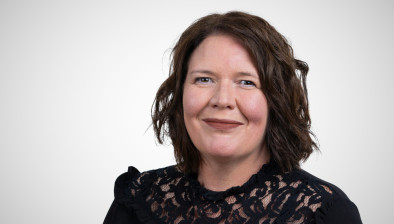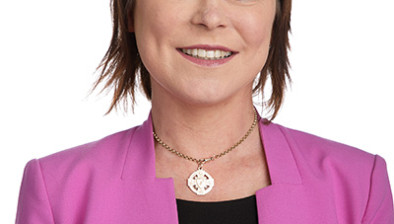England: Most women lawyers ‘have experienced inappropriate comments’ from men

Dana Denis-Smith
Some 58 per cent of women in the legal profession say they or women they work with have experienced inappropriate comments from male colleagues relating to their gender, new research has found.
Almost half, 46 per cent, reported that either they or one of their colleagues had not complained about discrimination for fear of the impact on their careers.
The survey exploring the reality of life for women working in the legal profession conducted by The First 100 Years project has found that there are still considerable barriers to progression and equality.
The survey of over 700 solicitors, barristers and other women working in the legal profession showed that: only two per cent think there is true equality in the legal profession; 80 per cent predict it will take 20 years or more to achieve equality; and 32 per cent consider that, at the current rate of progress, it will take 100 years.
“Women in my workplace are routinely discriminated against, harassed and then forced into silence if they complain,” said one law firm associate.
“Diversity and ‘women’s initiatives’ are PR orientated – my firm is a supposed leader in these areas on paper, but it is a completely different story in practice.”
A partner responded: “I was promoted to partner in an all-male partnership. I felt I had to constantly justify my position, as some within the partnership hinted that I was only offered the role because they needed to have a female partner.”
One barrister said: “When I announced my second pregnancy, a senior male said to me “goodness you didn’t keep your legs shut for long”. A law firm trainee reported that “those at the top of my firm are aware of some of the sexual harassers and do nothing to stop or address them”.
Women at all levels in the profession also expressed concerns about discrimination and the predominance of men at the top.
Fifty-two per cent agree that it is still easier for men in their organisations to achieve a promotion than it is for women. Less than half of those surveyed agree that women are fairly represented in the senior management of their organisation.
“Gender discrimination is rife,” explained one partner. “The “boys’ network” remains in full force, excluding women from networking opportunities and bullying them so that they feel inadequate and incapable.”
“Partnership structures in law firms breed the boys’ club mentality,” said one associate, “Earlier in my career I wanted to prove myself equal, better even, than the men. Now I look a few years ahead to partnership and realise I don’t want to be in a boys’ club even if they invite me in.”
Dana Denis-Smith, founder of The First 100 Years, said: “Many organisations in the legal world are succeeding in creating an acceptable working environment, in which discrimination and harassment are not tolerated and family friendly working patterns are at least a possibility.
“This is proof that it can be done, yet it is clear that 100 years after women were first permitted to practise, they are still being held back. In some cases, they are being treated unlawfully by their employers and many are leaving a profession that they feel does not work for them.
“Progress is proving stubbornly slow and what is needed is more women at the top. The culture and attitude towards women that evidently still exists in some corners of the legal profession means that this is not going to happen organically. Quotas are necessary. Self-regulation doesn’t work and will only take us so far. I believe change sometimes needs to be forced.
“I would like to see all parts of the legal profession coming together to work on this diversity problem. We need the legal regulators along with the Bar Council, Law Society and Chartered Institute of Legal Executives to form a profession-wide taskforce to come up with solutions that tackle it head on.”









